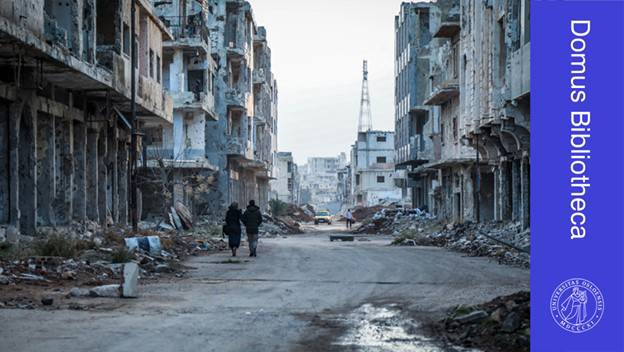
How have our understandings of and narratives about women and war changed over time? Which stories about women and conflict still tend to be erased or forgotten, and which topics do we need more knowledge about? On International Women’s Day this year, the Center for Interdisciplinary Gender Research at the University of Oslo hosted a thought-provoking conversation, examining the intersection of women and war.
The event brought together distinguished speakers and activists to explore the nuanced impacts of conflict on women and girls, shedding light on narratives often overlooked in mainstream discourse.
PRIO was well represented at the event, with Research Professor Inger Skjelsbæk delivering introductory remarks and Torunn L Tryggestad, Deputy Director at PRIO and Director of the PRIO Centre on Gender, Peace, and Security, participating as a speaker and panelist.
In her presentation, Tryggestad highlighted the glaring disparity in women's participation in peace negotiations. Citing a study conducted by Jana Krause between 1990 and 2014, Tryggestad emphasized that out of over 130 peace agreements signed globally, a mere 13 were signed by women. She underscored the consequential impact of women's involvement in peace processes, as women’s participation in peace negotiations increases the durability and the quality of peace.
Tryggestad’s remarks were followed by Wendy Hamelink, a researcher at the Centre for Gender Research, UiO, who offered a critical examination of the situation of Kurdish women within the context of conflict, shedding light on their unique challenges and resilience in navigating wartime conditions. The third and final speaker was human rights and peace activist, Hajer Sharief. Sharif shared her firsthand experiences of living through civil wars in Libya, and emphasized the imperative of preventing war by challenging conventional approaches that prioritize militarization.
Following the presentations, the speakers took part in a panel discussion, moderated by researcher and politician Laila Bokhari, which underscored the need for holistic approaches to peace negotiations, acknowledging the invaluable contributions of women to foster inclusive and sustainable peace. The event concluded with a Poetry reading by Hanna Asefaw.





